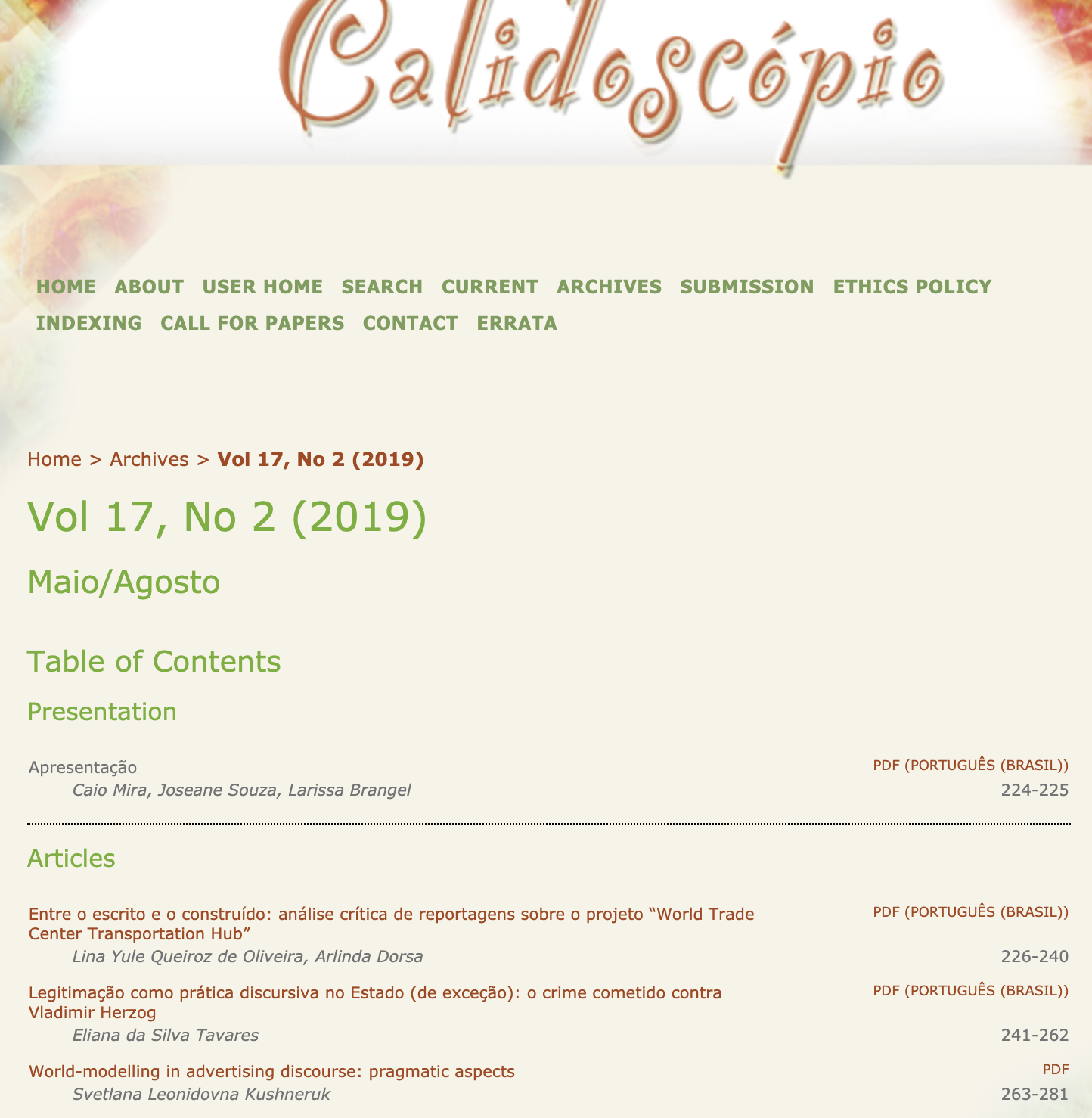Kushneruk S. L. (2019). World-modelling in advertising discourse: pragmatic aspects

Svetlana Leonidovna Kushneruk
South Ural State Humanitarian Pedagogical University,
Chelyabinsk, Russian Federation
WORLD-MODELLING IN ADVERTISING DISCOURSE: PRAGMATIC ASPECTS
For citation: Kushneruk, S. World-modelling in advertising discourse: pragmatic aspects // Calidoscópio. – № 17 (2). – 2019. – P. 263–281.
ISSN 2177-6202.
Doi: 10.4013/cld.2019.172.03.
http://revistas.unisinos.br/index.php/calidoscopio
The article is dedicated to world-modelling in commercial advertising. The author draws on European and Russian cognitive-discursive theories, which emphasize the importance of studying discourse in terms of mental representations and sets out the basics of World Modelling Theory. The named theory is used in the paper as a framework for understanding linguistic mechanisms of structuring information about the world by ‘the powerful’ agent of advertising discourse and its representation in slogans for the main objectives of communication. The argument is that text-worlds, generated by slogans, are cognitive-pragmatic representation- al structures of discourse, mediating the interaction of agent, client, and product, that depend on a wide range of contextual factors, having marketing character. The paper considers linguistic mechanisms of activating representational structures in correlation with pragmatic aspects of advertising communication, which lead to pro- filing three entities in the text-worlds – ADDRESSER, ADDRESSEE, PRODUCT. Typical world-modelling patterns are analyzed in the perspective REALITY – PO- TENTIALITY. It is shown that agent of discourse governs the perception of state of affairs presented in the text-world either exploiting the existing mass representations or creating new ones that eventually become socially accepted.
Key-words: advertising discourse, text-world, world-modelling
М.Монтень

